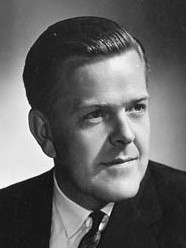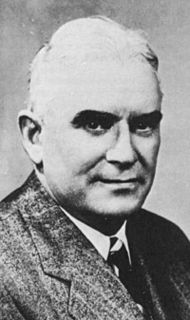
The British Columbia general election of 1996 was the thirty sixth provincial election in the Province of British Columbia, Canada. It was held to elect members of the Legislative Assembly of British Columbia. The election was called on April 30, 1996, and held on May 28, 1996. Voter turnout was 59.1 per cent of all eligible voters. The election is notable for producing a "false-winner" outcome, rewarding a party that got second in the popular vote with a majority government.

The British Columbia general election of 1986 was the 34th general election in the Province of British Columbia, Canada. It was held to elect members of the Legislative Assembly of British Columbia. The sitting Social Credit government was re-elected.
The British Columbia general election of 1983 was the 33rd provincial election for the province of British Columbia, Canada. It was held to elect members of the Legislative Assembly of British Columbia. The election was called on April 7, 1983. The election was held on May 5, 1983. The new legislature that resulted from this election met for the first time on June 23, 1983.
The British Columbia general election of 1979 was the 32nd general election in the Province of British Columbia, Canada. It was held to elect members of the Legislative Assembly of British Columbia. The election was called on April 3, 1979. The election was held on May 10, 1979, and the new legislature met for the first time on June 6, 1979.
The British Columbia general election of 1975 was the 31st general election in the Province of British Columbia, Canada. It was held to elect members of the Legislative Assembly of British Columbia. The election was called on November 3, 1975, and held on December 11, 1975. The new legislature met for the first time on March 17, 1976.
The British Columbia general election of 1966 was the 28th general election in the Province of British Columbia, Canada. It was held to elect members of the Legislative Assembly of British Columbia. The election was called on August 5, 1966 and held on September 12, 1966. The new legislature met for the first time on January 24, 1967.

The British Columbia general election of 1963 was the 27th general election in the Province of British Columbia, Canada. It was held to elect members of the Legislative Assembly of British Columbia. The election was called on August 22, 1963, and held on September 30, 1963. The new legislature met for the first time on January 23, 1964.
The British Columbia general election of 1960 was the 26th general election in the Province of British Columbia, Canada. It was held to elect members of the Legislative Assembly of British Columbia. The election was called on August 3, 1960, and held on September 12, 1960. The new legislature met for the first time on January 26, 1961.

The British Columbia general election of 1956 was the 25th general election in the Province of British Columbia, Canada. It was held to elect members of the Legislative Assembly of British Columbia. The election was called on August 13, 1956, and held on September 19, 1956. The new legislature met for the first time on February 7, 1957.

The British Columbia general election of 1953 was the 24th general election in the Province of British Columbia, Canada. It was held to elect members of the Legislative Assembly of British Columbia. The election was called on April 10, 1953, and held on June 9, 1953. The new legislature met for the first time on September 15, 1953.

The 1952 British Columbia general election was the 23rd general election in the Province of British Columbia, Canada. It was held to elect members of the Legislative Assembly of British Columbia, alongside a plebiscite on daylight saving time and liquor. The election was called on April 10, 1952, and held on June 12, 1952. The new legislature met for the first time on February 3, 1953. It was the first general election to use a preferential ballot, a short-lived phenomenon in BC. The presence of multi-member districts such as Victoria City with 3 MLAs in conjunction with the Alternative voting system called for an innovation where the district's slate of candidates was split into three "ballots," each with one candidate from each party.
The British Columbia general election of 1937 was the nineteenth general election in the Province of British Columbia, Canada. It was held to elect members of the Legislative Assembly of British Columbia. The election was called on April 14, 1937, and held on June 1, 1937. The new legislature met for the first time on October 26, 1937.
The British Columbia general election of 1928 was the seventeenth general election in the Province of British Columbia, Canada. It was held to elect members of the Legislative Assembly of British Columbia. The election was called on June 7, 1928, and held on July 18, 1928. The new legislature met for the first time on January 22, 1929.

The British Columbia general election of 1903 was the tenth general election for the Province of British Columbia, Canada. It was held to elect members of the Legislative Assembly of British Columbia. The election was called on September 5, 1903, and held on October 3, 1903. The new legislature met for the first time on November 26, 1903.
The British Columbia general election of 1924 was the sixteenth general election in the Province of British Columbia, Canada. It was held to elect members of the Legislative Assembly of British Columbia. The election was called on May 10, 1924, and held on June 20, 1924. The new legislature met for the first time on November 3, 1924.

The British Columbia general election of 1920 was the fifteenth general election for the Province of British Columbia, Canada. It was held to elect members of the Legislative Assembly of British Columbia. The election was called on October 23, 1920, and held on December 1, 1920. The new legislature met for the first time on February 8, 1921.
The British Columbia general election of 1916 was the fourteenth general election for the Province of British Columbia, Canada. It was held to elect members of the Legislative Assembly of British Columbia. The election was called on July 5, 1916, and held on September 14, 1916. The new legislature met for the first time on March 1, 1917.
The British Columbia general election of 1912 was the thirteenth general election for the Province of British Columbia, Canada. It was held to elect members of the Legislative Assembly of British Columbia. The election was called on February 27, 1912, and held on March 28, 1912. The new legislature met for the first time on January 16, 1913.
The British Columbia general election of 1909 was the twelfth general election for the Province of British Columbia, Canada. It was held to elect members of the Legislative Assembly of British Columbia. The election was called on October 20, 1909, and held on November 25, 1909'. The new legislature met for the first time on January 20, 1910.
The British Columbia general election of 1907 was the eleventh general election for the Province of British Columbia, Canada. It was held to elect members of the Legislative Assembly of British Columbia. The election called on December 24, 1906, and held on February 2, 1907. The new legislature met for the first time on March 7, 1907.









